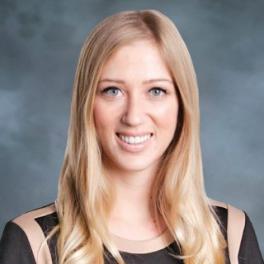
Ali Wolf received her BS in Econ from Ohio State about 20 years ago and is now Chief Economist for Zonda, the largest data provider for the new home market in North America.
Q: Why did you choose to study economics at Ohio State?
I think I was always meant to be an economist, but didn’t know it until I took my intro to econ class at OSU. I remember opening my textbook and reading the first sentence that said, “Economics is the efficient allocation of resources.” While it sounds weird to say, my first reaction was, “that describes how I live my life perfectly.” I’ve always been obsessed with efficiency in my personal life, and to learn that there was a field that covered that in a more practical/business setting intrigued me.
Q: What has been your career path following your graduation from Ohio State?
The interesting thing about a degree in economics is that the career path isn’t always obvious. Some people use econ as a stepping stone for law school (my original plan), while others focus on a certain field, like healthcare or real estate. I wasn’t entirely sure how I wanted to apply the knowledge until I took a class called “Housing Economics” at OSU, taught by Don Haurin.
That class was another big ah-ha to me. I realized that housing economics allowed me to apply all of my technical knowledge to everyday life and consumers. I ended up going to the London School of Economics to get a master’s degree in real estate economics and finance.
After graduation, I moved to California and started working as a research analyst, and have since worked my way up to Chief Economist of Zonda, a housing data and consultancy firm.
Q: What did you feel least prepared for when you began your first job post-graduation?
While I took econometric classes and manipulated data for my master’s thesis, neither of my programs were particularly data heavy. Once I started my first job, I realized my data skills were lacking compared to some of my peers.
Q: In your current position, what do you do on a day-to-day basis?
Zonda’s clients are predominately builders, developers, private equity, hedge funds, and policy makers. What I’m tasked to do is provide a constant ‘state of market’ to our clients. This includes tracking employment data, economic trends, differences in housing and/or economic data by market, warning signs, opportunities, migration patterns, and more. My team and I write written research papers, talk to press, and give presentations. I’m on the road most weeks of the year giving talks at industry conferences.
Q: How has the economics you studied at Ohio State helped you in your career?
Beyond the education and friends I met at OSU, I’d say just having the school associated with my name has been wildly beneficial. It doesn’t matter where I travel to in the US, I find fellow Buckeye alumni or sports fans. In the business world, it’s all about who you know, and being a graduate of OSU has helped me grow my network and form meaningful relationships.
Q: What is the most challenging work experience you've encountered so far?
When the pandemic hit, our clients were frantically calling us asking about what was going to happen to the market. My coworker and I started doing webinars every week for 4 months starting late-March to provide real-time insights on housing and economic data. After a while, those webinars became once every 2 weeks, to once every month, to once every 6 weeks, which we still do today! Having to pivot in a changing market, find real-time data sources, offer advice while having humility, and accepting that sometimes we will ‘call it wrong’ has been one of my biggest career challenges.
Q: What is your next biggest career goal?
I just hit it! I’ve been the Chief Economist of Zonda since 2020, but I just got an expanded role to also be the Chief Economist for NewHomeSource, Zonda’s B2C business.
Q: Do you have any regrets from your time at OSU?
I don’t, actually. I loved my time at OSU!
Q: Do you have any parting thoughts and/or advice for current economics students?
The biggest advice I can give is to get comfortable with small talk. Meaningful relationships will be integral to your success, and to form them, you need to find connection points. Be curious, ask other people about themselves, and seek commonalities (books, sports, hometowns, hobbies, travel, fashion, etc).
